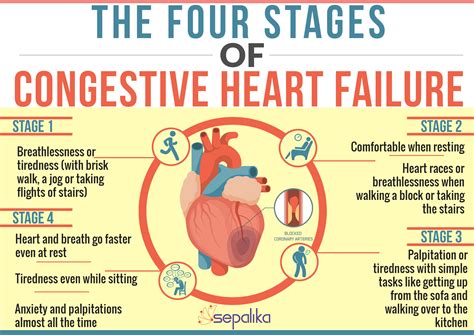Heart Failure - Understanding a Common Cardiac Condition
Heart Failure FAQ
What is heart failure & how is it treated?
Heart failure occurs when your heart is unable to pump an adequate supply of blood to the body. It may require ongoing treatment to keep your body’s major functions working properly. Approximately 6.2 million people have heart failure in the United States, according to the Centers for Disease Control and Prevention (CDC).
What does heart failure mean?
Heart failure means that the heart is unable to pump blood around the body properly. It usually happens because the heart has become too weak or stiff. It's sometimes called congestive heart failure, although this name is not widely used now. Heart failure does not mean your heart has stopped working.
Is heart failure a serious condition?
However, heart failure is a serious condition that needs medical care. More than 6 million adults in the United States have heart failure, according to the Centers for Disease Control and Prevention. Children can also have heart failure, but this health topic focuses on heart failure in adults.
How does heart failure affect the body?
Heart failure is a lifelong condition in which the heart muscle can't pump enough blood to meet the body’s needs for blood and oxygen. Basically, the heart can’t keep up with its workload. Watch an animation of heart failure . Enlarging. The heart stretches to contract more strongly and keep up with the body's demand to pump more blood.
What causes heart failure?
Sometimes obesity, anaemia, drinking too much alcohol, an overactive thyroid or high pressure in the lungs ( pulmonary hypertension) can also lead to heart failure. Treatment for heart failure usually aims to control the symptoms for as long as possible and slow down the progression of the condition.
How is heart failure diagnosed?
The specialist heart failure team will arrange an ultrasound scan of the heart (echocardiogram). This painless test can usually confirm the presence of heart failure and can often diagnose the cause of the heart failure. It also will measure the ejection fraction explained above, to determine which type of heart failure you have.
What is a heart failure guide?
Designed for adults of all ages who have heart failure, and for their families, carers and friends, this practical guide will help you understand and manage your condition better. It contains tips and advice about medications, treatment, self-management and dealing with everyday challenges which will help you live your life as full as possible.
How does heart failure affect your body?
This affects how your body works, including your breathing and muscles. This causes some of the main symptoms of heart failure, like: swelling in your feet and ankles which can spread to your lower body. You should see your GP as soon as you can if you experience any of these symptoms.
Heart Failure References
If you want to know more about Heart Failure, consider exploring links below:
What Is Heart Failure
- https://www.nhs.uk/conditions/heart-failure/
- https://www.bhf.org.uk/informationsupport/conditions/heart-failure
- https://www.mayoclinic.org/diseases-conditions/heart-failure/symptoms-causes/syc-20373142
- https://www.healthline.com/health/heart-failure
- https://www.heart.org/en/health-topics/heart-failure/what-is-heart-failure
- https://www.nhsinform.scot/illnesses-and-conditions/heart-and-blood-vessels/conditions/heart-failure
- https://www.nhlbi.nih.gov/health/heart-failure
- https://my.clevelandclinic.org/health/diseases/17069-heart-failure-understanding-heart-failure
- https://cks.nice.org.uk/topics/heart-failure-chronic/background-information/definition/
- https://www.msdmanuals.com/en-gb/professional/cardiovascular-disorders/heart-failure/heart-failure-hf
Heart Failure Information
Explore Related Topics
Mastering Diabetes Management with Group Exercise Classes
Unleash the potential of group exercise programs as a key component in your diabetes management toolkit.
Are Home Blood Pressure Monitoring Kits Worth the Investment for Diabetic Patients?
Evaluate the benefits and drawbacks of investing in home blood pressure monitoring kits for diabetes care.
Pilates and Diabetes: Unlocking the potential of Pilates in diabetes care
Join the conversation about how Pilates can contribute to a healthier lifestyle for those with diabetes!
